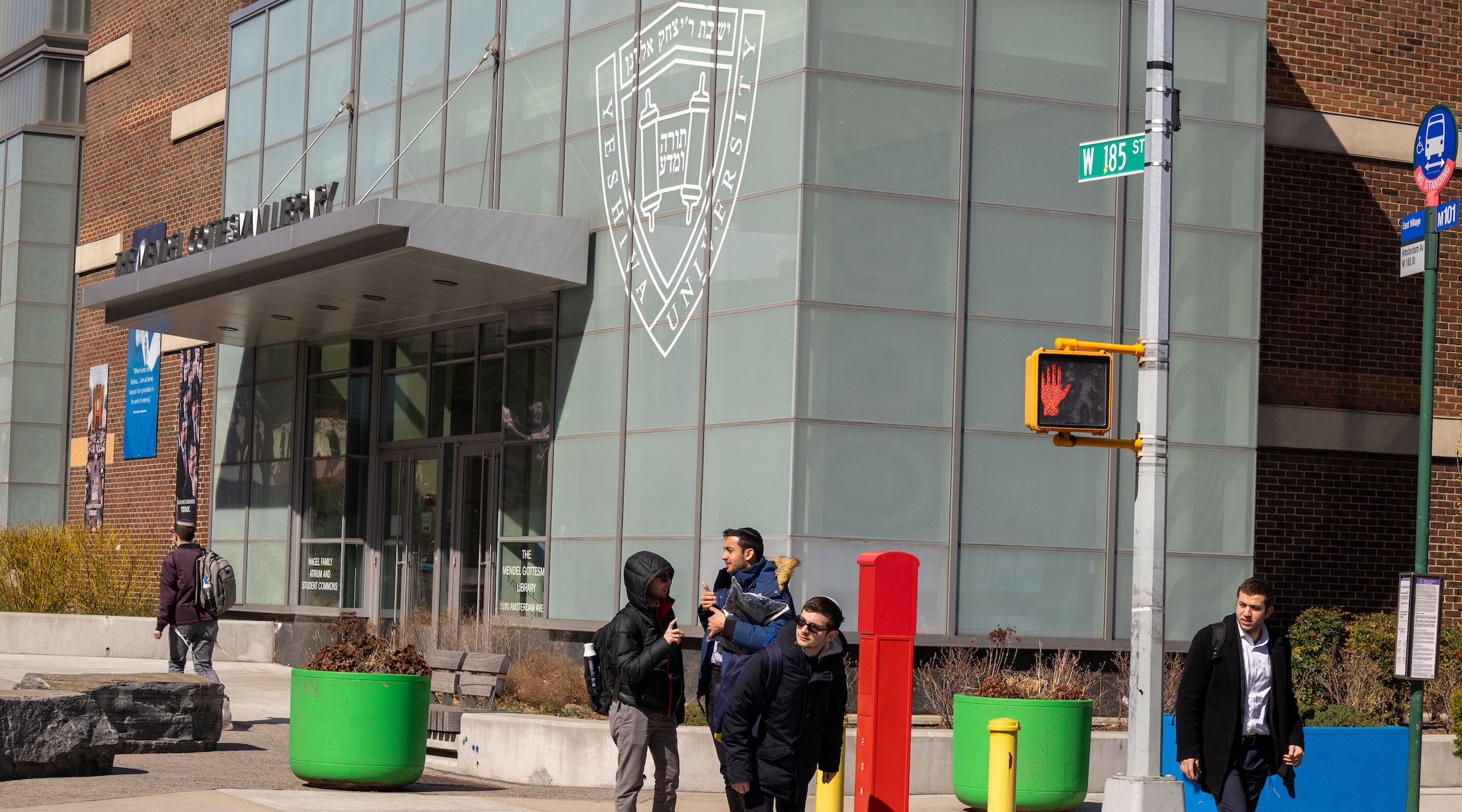Yeshiva University petitions SCOTUS to block LGBTQ student club
An appeals court judge rejected the school’s denial of stay earlier this month

Exterior of Yeshiva University’s Wilf Campus in Manhattan’s Washington Heights neighborhood. Photo by David Dee Delgado/Getty Images
Yeshiva University filed an emergency request with the U.S. Supreme Court to block a lower court decision that forces the university to recognize an LGBTQ student club.
The school’s appeal, based on the First Amendment, is the latest legal action in a yearslong conflict between the Orthodox university and students who support the group.
With YU already in session and the undergraduate student government soon to approve various student clubs, the YU Pride Alliance, formed in 2009, was poised to receive formal recognition for the first time. That followed a New York County Supreme Court ruling that held the school had violated a local civil rights law by denying it.
In the school’s 42-page petition to the Supreme Court, YU President Ari Berman called the lower court’s ruling “an unprecedented intrusion into Yeshiva’s religious beliefs and the religious formation of its students in the Jewish faith.”
The filing was made by the Becket Fund for Religious Liberty, a nonprofit law firm, to Justice Sonia Sotomayor, the one assigned to cases originating in New York. Sotomayor, considered the court’s most liberal justice, can grant a stay or request the full court to weight in — making it a Supreme Court case — or reject the application outright. The Becket Fund sued former New York Gov. Andrew Cuomo in 2020 for forcing an Orthodox school to close at the height of the COVID-19 pandemic.
Sotomayor, requested a response from the Pride Alliance by Sept. 2.

LGBTQ issues are fraught in the Orthodox world because of a verse in the Torah that appears to explicitly prohibit men having sex with men. YU maintains that recognizing an LGBTQ group would “violate its sincere religious beliefs about how to form its undergraduate students in Torah values.”
The school has many LGBTQ students and alumni who have spoken frankly about their experiences, describing a culture of alienation and fear at the school.
The June 14 ruling by Judge Lynn Kotler said YU’s request to be viewed under the city’s Human Rights Law as a “religious corporation” — a status that would exempt it from the city’s anti-discrimination laws — and not as an educational institution, was inconsistent with the school’s activity and messaging.
Kotler ruled that YU must give the Pride Alliance “full and equal accommodations, advantages, facilities, and privileges afforded to all other student groups,” adding that recognizing any student group was not the same thing as endorsing its views or practices.
At the time, Molly Meisels, one of the plaintiffs in the case, called the decision “monumental.”
An appeals court judge refused to review a denial of stay earlier this month that would have enabled the school to hold off on approving the club, prompting Monday’s Supreme Court filing.
Founded in 1886, YU is in the midst of a $613 million fundraising campaign in which it bills itself as “the flagship Jewish university.”





















